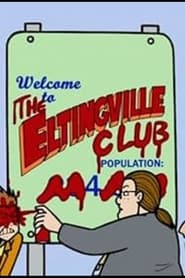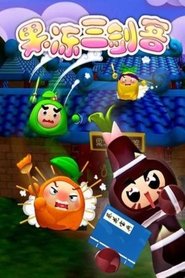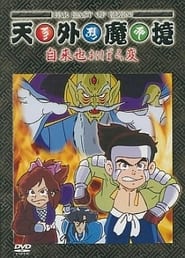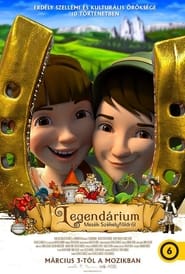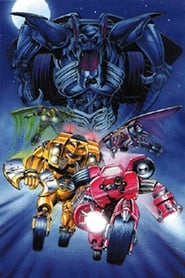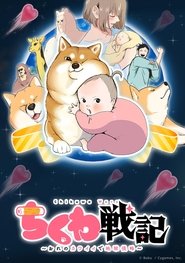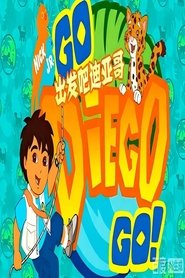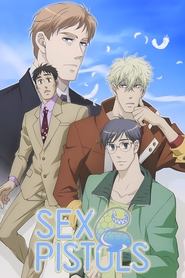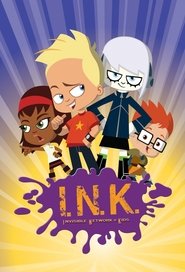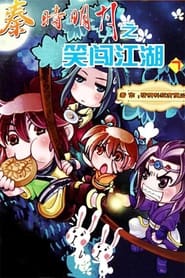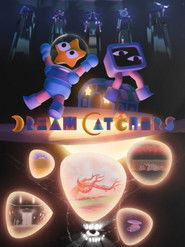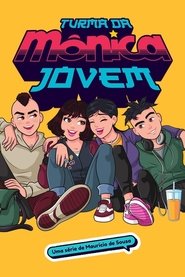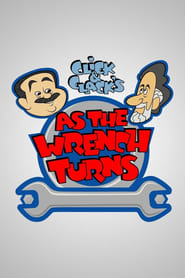Popular Animation TV Series on Tub Tv - Page 442
-
Welcome to Eltingville
2002
star 7Welcome to Eltingville is an animated comedy pilot based on Evan Dorkin's Eisner Award winning comic book, Dork!; which takes place in Eltingville, Staten Island. The pilot episode, titled "Bring Me the Head of Boba Fett", in the premiered in the United States on March 3, 2002, on Cartoon Network's late night programing block, Adult Swim. -
果冻三剑客
2007
-
My Stupid Boss: The Animated Series
2025
star 7Kerani hopes to escape Bosman's chaos after being transferred to a branch office in a small Sarawak town, but his hopes are quickly shattered as the turmoil persists. -
Tengai Makyou: Ziria Oboro Hen
1990
star 10Based on the first Tengai Makyou game, that initially came out in 1989 as one of the first titles for NEC's PC Engine CD-ROM. -
Codename: Kids Next Door
2002
star 8.2Taking numbers instead of names, five extraordinary 10-year-olds form a covert team called the Kids Next Door with one dedicated mission: to free all children from the tyrannical rule of adults. -
Transylvanian Legendarium
2020
star 6Zete and Rika, with the help of Grandpa, are plunged into the secret world of székely (szekler) legends. -
Van-pires
1997
Van-pires
1997
star 9.7Van-Pires is a computer animated children's television series that originally aired in the USA between 1997 and 1998 in syndication mostly on Fox and WB affiliates. It was produced by Abrahams/Gentile, with CGI animation being produced under MSH. The series was rated #1 in its time slot during several broadcasts in various United States and International markets. Van-Pires was the first children's CGI-animated television series to be produced using the 3D modeling and animation software 3D Studio MAX. It was only the third CGI-animated television series of its kind to use 3D animation in every episode, and ultimately received a Sci-Fi Award. Van-Pires also had portions of its soundtrack written and performed by John Entwistle of the band The Who and Steve Luongo Entwistle's long-time friend, producer and drummer in The John Entwistle Band. A range of other talented voices and animators were involved in production of the series. The Van-Pires synopsis and its stories center on a group of human teenagers who prote -
Chikuwa Wars
2025
Chikuwa Wars
2025
-
Go, Diego, Go!
2005
Go, Diego, Go!
2005
-
Love Pistols
2010
Love Pistols
2010
star 5An average boy named Norio is suddenly getting a lot of unwanted romantic attention. A fall down the stairs into the arms of a handsome stranger sets off the beginnings of an explanation, and it is one Norio never could have possibly imagined. Soon a whole new world opens up for Norio revealing a secret society of special people evolved from animals other than monkeys. Norio turns out to be a particularly rare breed and his DNA is in high demand. Now that he's suddenly the prey, it'll take much effort to survive in this modern jungle. This story revolves around a high school boy who discovers that he is part of a select group of humans who did not evolve from monkeys, but various animals such as leopards and black bears. -
Invisible Network of Kids
2009
star 5Pinkerton School is a boarding school with two teachers. One of the teachers, Mr. Soper, is nice, and the other, Ms. Macbeth, is evil and is constantly trying to enslave the children of the school. However, four of the students act as a secret organisation known as "The Invisible Network of Kids", or "I.N.K." for short. I.N.K's mission is to thwart all of Ms. Macbeth's evil plans. -
Jungle Beat
2012
Jungle Beat
2012
-
Ernest the Vampire
1989
-
秦时明月之笑闯江湖
2010
秦时明月之笑闯江湖
2010
-
Little Tamageta, the Neighbor
1974
The adventures of a witless boy who finds a time machine hidden in a cave near his house. The 5 minutes episodes aired during the morning television show "Ohayo Kodomo" -
Dream Catchers
2024
Dream Catchers
2024
star 8Dream Catchers is a surreal series that follows Star and TV, who are tasked with the job of traveling through people’s dreams to help them with their troubles. Join them, as they learn new things, solve problems, and make new ones! -
Splat & Harry
2020
Splat & Harry
2020
-
Click and Clack's As the Wrench Turns
2008
Click and Clack's As the Wrench Turns is an animated television series that follows the adventures of the brothers Click and Clack from their auto repair shop Car Talk Plaza. The program stars Tom and Ray Magliozzi, also known as the Tappet Brothers, from National Public Radio's Car Talk. The Wednesday night prime-time series debuted on July 9, 2008, and additionally in various time slots depending on local station scheduling. The series aired its ten-episode season in two-episode blocks for five weeks. -
The Legend of the Resourceful Princess
2019
After rebirth, Mu Yunyao never did three things: be kind to others, leave a chance for evil, and believe in true feelings. She was sinister and reckless, who would rather turn the world upside down than stoop to compromise. However, there was always a cold-faced prince tailing her secretly, who wanted to marry and adore her.
 Netflix
Netflix
 Amazon Prime Video
Amazon Prime Video
 Apple iTunes
Apple iTunes
 Apple TV Plus
Apple TV Plus
 Disney Plus
Disney Plus
 Google Play Movies
Google Play Movies
 Paramount Plus
Paramount Plus
 Hulu
Hulu
 HBO Max
HBO Max
 YouTube
YouTube
 fuboTV
fuboTV
 Peacock
Peacock
 Peacock Premium
Peacock Premium
 Amazon Video
Amazon Video
 The Roku Channel
The Roku Channel
 AMC+
AMC+
 Kocowa
Kocowa
 Hoopla
Hoopla
 The CW
The CW
 Vudu
Vudu
 Starz
Starz
 Showtime
Showtime
 PBS
PBS
 Pantaflix
Pantaflix
 FXNow
FXNow
 Tubi TV
Tubi TV
 Kanopy
Kanopy
 Comedy Central
Comedy Central
 Crunchyroll
Crunchyroll
 Microsoft Store
Microsoft Store
 Redbox
Redbox
 Sun Nxt
Sun Nxt
 ABC
ABC
 DIRECTV
DIRECTV
 Crackle
Crackle
 Fandor
Fandor
 Plex
Plex
